Top 10 PHP Frameworks for Web Application Development!
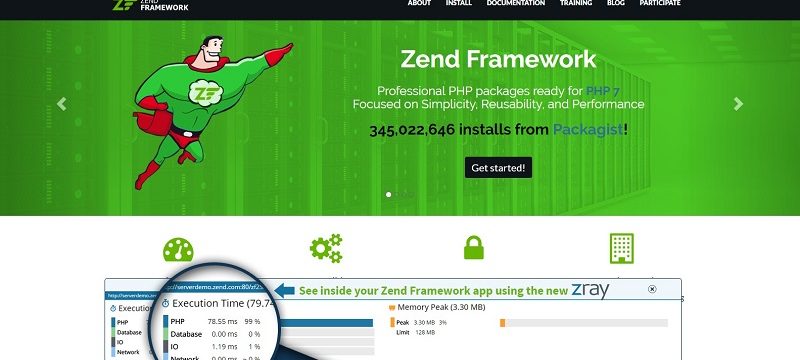
PHP is the most popular server scripting language in the world. It has gone a long way from small static HTML pages, snippets, embedded into code in regards to modern the language in which most modern dynamic sites are developed. However, with the increasing complexity and functionality of modern sites, there is a need to structure and organize the development process itself.
Therefore, PHP frameworks have become the most natural solution to this problem. However, here are the following PHP frameworks for the web application development.
1. Laravel
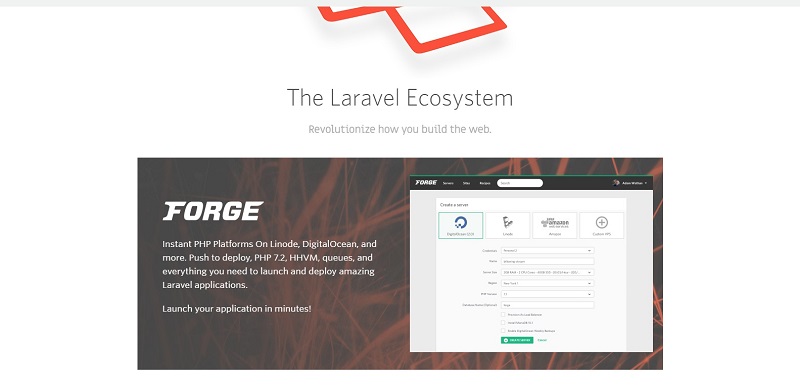
Laravel is one of the most popular and free open source PHP frameworks, with an expressive and elegant syntax. It will make it possible to simplify the solution of the main and most urgent tasks, such as authentication, routing, sessions and caching. In general, Laravel has all the functionality you need to create a modern PHP application.
Key features:
● Extend basic Laravel functionality using add-ons.
● Presence of an integrated unit testing system.
● Asynchronous queues and background jobs for long tasks.
Finally, Laravel boasts a highly active community and has a large amount of documentation.
2. Symfony
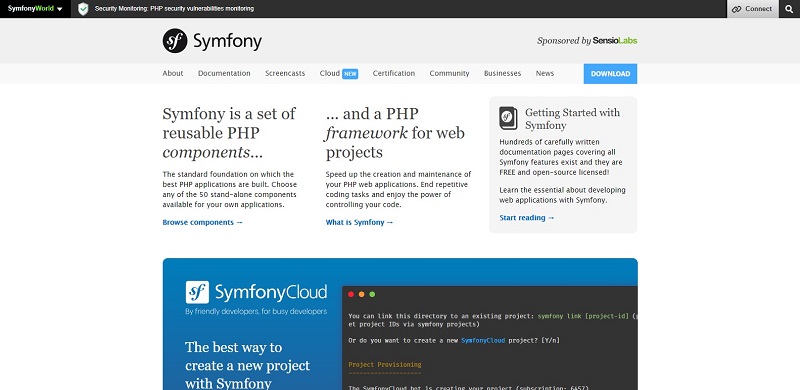
Symfony is a powerful structure that helps minimize the problem of a repetitive coding structure and is used to create superior websites and applications. Symfony Components is a set of PHP libraries that can satisfy the most diverse needs of a developer, be it form creation, routing, authorization, pattern development, and more. It offers rapid development and management of web applications, makes it easy to solve the routine tasks of a web programmer.
Key features:
● Use a very flexible structure that allows you to customize individual components.
● Take advantage of built-in platform testing functionality.
Symfony can be a good option if you care about modularity. You can simply use the components you want instead of the full library.
3. Yii
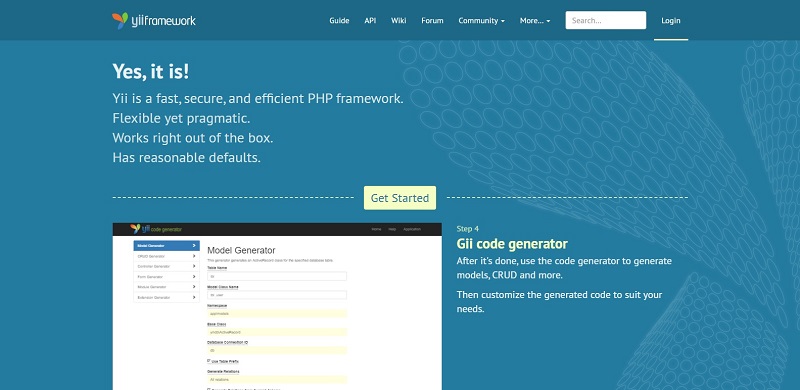
Yii is high-performance PHP framework using the MVC pattern and designed for the rapid development of modern web applications. Its capabilities allow in a short time to implement large-scale projects such as forums, portals, CMS, and other complex systems. It already contains many proven and ready-to-use solutions: query builder, ActiveRecord for relational and NoSQL databases, RESTful API, multilevel caching support, and many others.
Key features:
● Excellent speed and performance.
● Use the default settings or customize them according to your needs.
● Create secure sites and applications.
Yii uses an object-oriented approach and the concept of DRY to create clear and easily readable code.
4. CodeIgniter
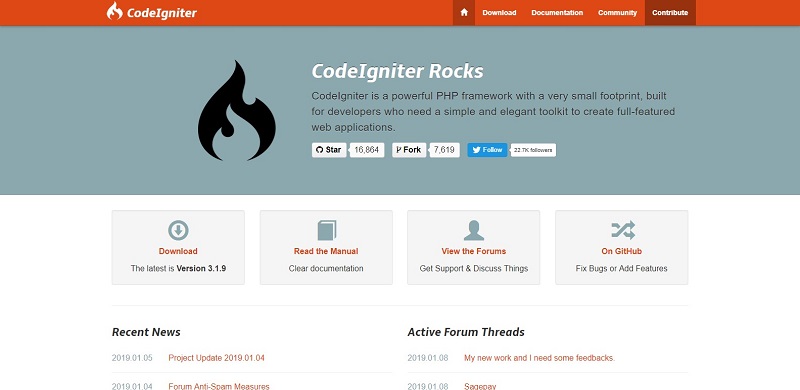
CodeIgniter is an open source platform and has the ability to support the development of next-generation applications that require simplified coding. It is lightweight and one of the most powerful PHP frameworks that offer simplified solutions to complex coding problems and integrated project management.
Key features:
● Use lightweight performance frameworks.
● It an excellent platform that is amazingly tested and widely used.
● Build scalable applications using infrastructure-based MVC architecture.
This means the CodeIgniter traditional feature is an extremely easy and fast installation process.
5. Zend
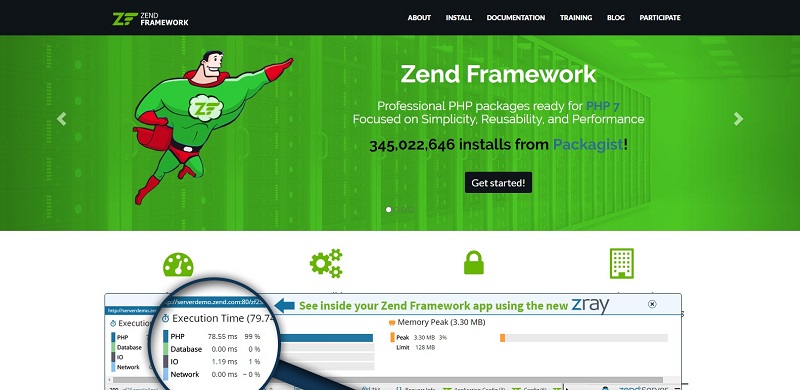
Zend is an object-oriented, MVC, based infrastructure that allows you to load only the components you want as separate libraries. It is a powerful and stable PHP framework with rich customization capabilities. In addition, it offers a robust and high-performance implementation of MVC and an easy-to-use database abstraction, as well as many other features that together make it one of the most functional frameworks.
Key Features:
● Reuse your code with platform design.
● It has many great features, such as encryption tools, a convenient editor that supports drag and drop and front-end technologies.
Zend is a full-fledged online debugger and has modules for testing and connecting to databases.
6. Slim
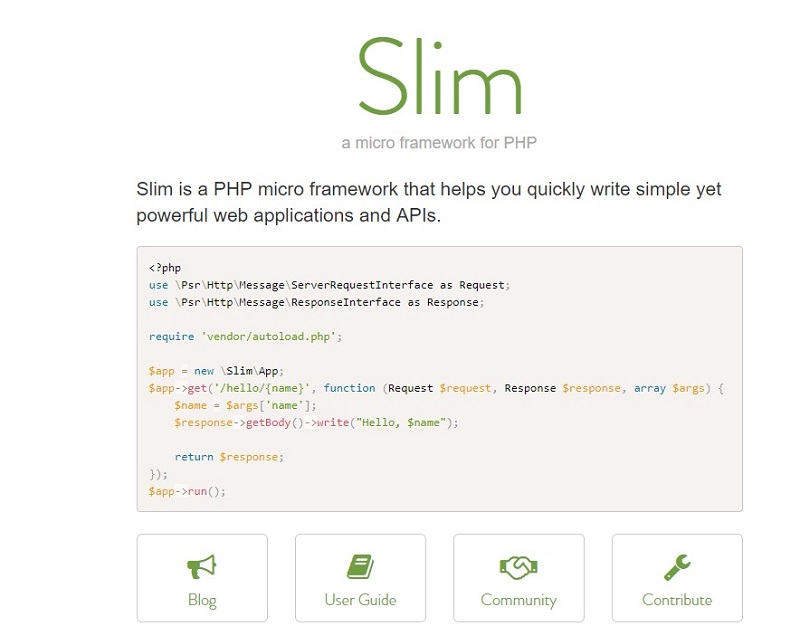
Slim is a PHP microframework, which is created according to the principle “it has everything you need. If there is nothing in it, then you do not need it”. This minimalist framework, well suited for creating small applications for which the use of a full-fledged framework would be overkill.
Key Features:
● It has excellent documentation and new features.
● Slim is widely used by developers to create RESTful APIs and services.
Slim has features like URL routing, client-side cache management, encryption of cookies and sessions, and support for flash messages via an HTTP request.
7. FuelPHP
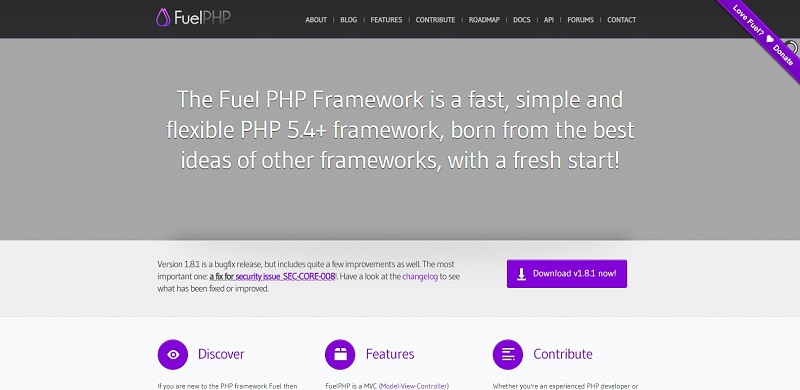
FuelPHP is a flexible and feature-rich PHP framework that supports the HMVC (Hierarchical Model-View-Controller) paradigm, which is a further development of the MVC model. It has an additional class Presenter (formerly called ViewModel), which connects the Controller and View classes, and is responsible for the logic necessary to generate the View.
Key Features:
● FuelPHP is easily extensible and enhanced default security.
● It has a unique command line utility.
FuelPHP has such useful functions as filtering input data and URLs, encryption, and contains its own authentication framework with its remarkable functions and extensive documentation.
8. Phalcon
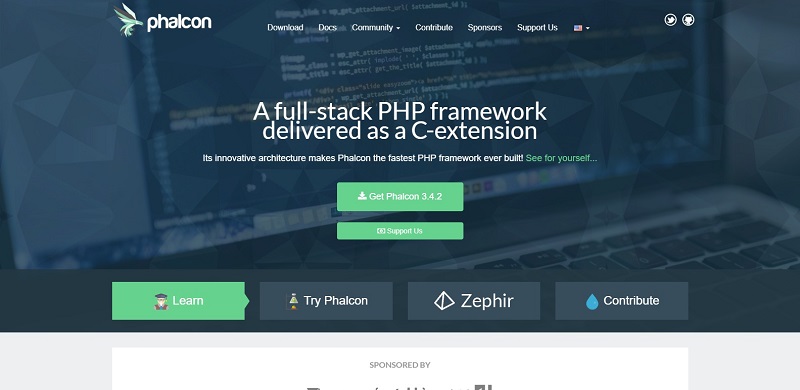
Most developers believe that Phalcon is a full-text structure that is written using C & C++. These languages improve its performance. Its basic functionality is complemented by many useful add-ons, like a universal autoloader, resource manager, caching and localization, and many others. With its low-level architecture and optimization, it provides the least amount of stress when running MVC applications.
Key Features:
● Use a PHP framework based on C
● Take advantage of Phalcon’s fantastic performance and low resource costs.
● Use only the modules and libraries that you need.
Phalcon has excellent documentation, so it belongs to the category of products that are definitely worth trying.
CakePHP
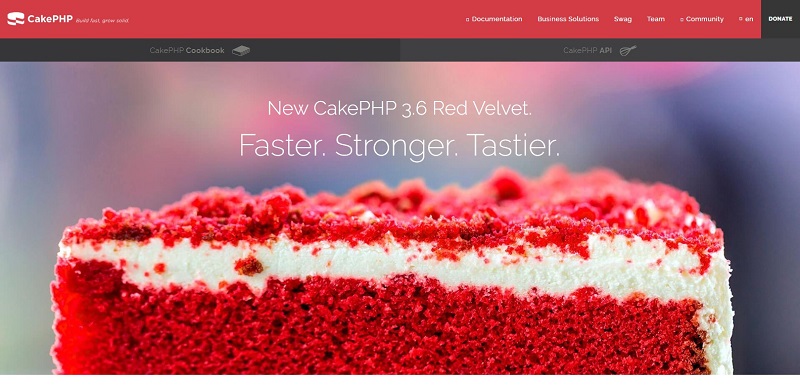
CakePHP is a PHP-based software framework for creating web applications with an active and fast-growing community. It contains a redesigned session manager, improved, separation of certain components, modularity, and the ability to create standalone libraries. Like most other frameworks, it implements the MVC pattern. This is a great application development tool that focuses on security and has good performance, modern components and helpers.
Key Features:
● Use CakePHP conventions for faster project coding.
● Take advantage of a wide range of components.
This framework boasts improved interoperability and monotony, as well as has the plug-in frameworks to improve the consistency of the framework parts with each other.
Aura

Aura provides the most high-quality, fully tested and separate libraries to use them in any coding structure. It has a rich and extensible component set to kick-start building apps. These components are best and you do not need to spend much time optimizing the apps for different devices. It will intelligently utilize your server, devices, browser, and network to focus on the logic and interactions of your apps.
Key Features:
● Ideal for working with small REST APIs.
● Has the phase of active development.
● Add-ins include HTTP caching and Flash.
Applications developed with App Builder can connect to multiple data sources other than Salesforce.
Summing Up
There are many programming languages you can use, but PHP is still the best option for server-side scripts. However, even if you are a PHP professional, then coding all parts of each new project will take a long time. But, if you choose the best PHP framework for your needs, then you can skip many of the basics and go straight to the interesting part of developing a new project.
Subscribe & Get E-Mail Updates Delivered
Our informative Design related articles featuring the latest Resources for Web Designers & the Web get delivered via email dialy. Thousands of readers have signed up already. Why don't you subscribe as well, and get articles delivered to your inbox?
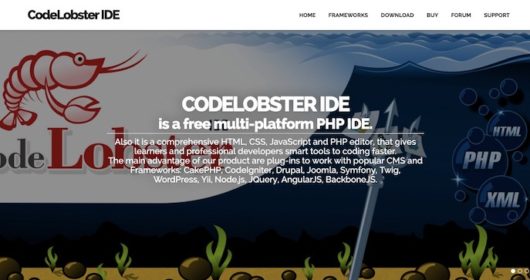


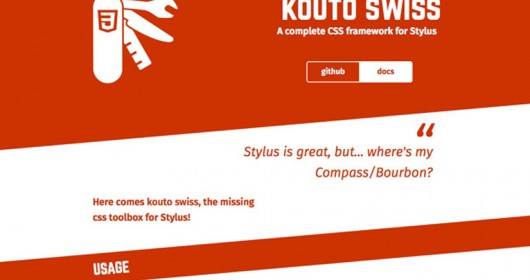


Leave a Reply